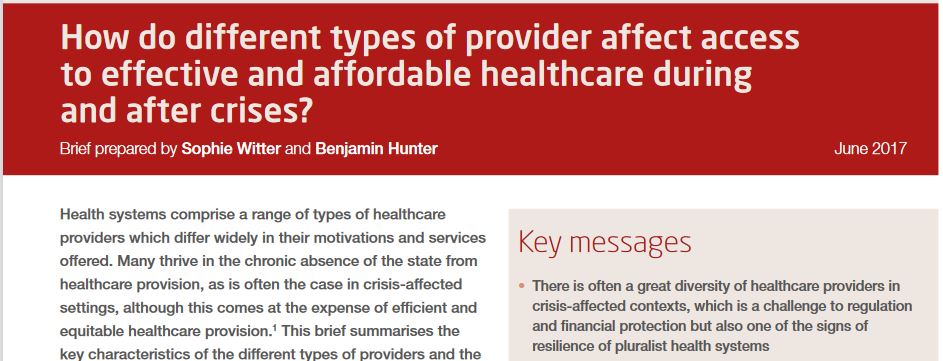
How do different types of provider affect access to effective and affordable healthcare during and after crises?
Health systems comprise a range of types of healthcare providers which differ widely in their motivations and services offered. Many thrive in the chronic absence of the state from healthcare provision, as is often the case in crisis-affected settings, although this comes at the expense of efficient and equitable healthcare provision. This brief summarises the key characteristics of the different types of providers and the health services they offer, and discusses their involvement in health crises and possible interventions that can increase access to effective and affordable healthcare during and after crises.
This brief is one of a series of ReBUILD papers addresses key questions on health systems strengthening in settings affected by conflict or crisis. The purpose of these briefing papers was to bring together current knowledge and research in order to inform decision-makers, implementers, researchers and other stakeholders in this area.
The questions addressed in the series were identified through a study of priority research needs carried out by the Thematic Working Group on Health Systems in Fragile and Conflict Affected States. ReBUILD researchers have drawn on both the programme’s own research and on wider published literature to address eight of the questions through this series of briefing papers.